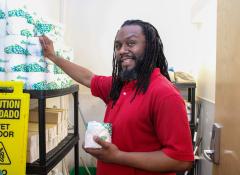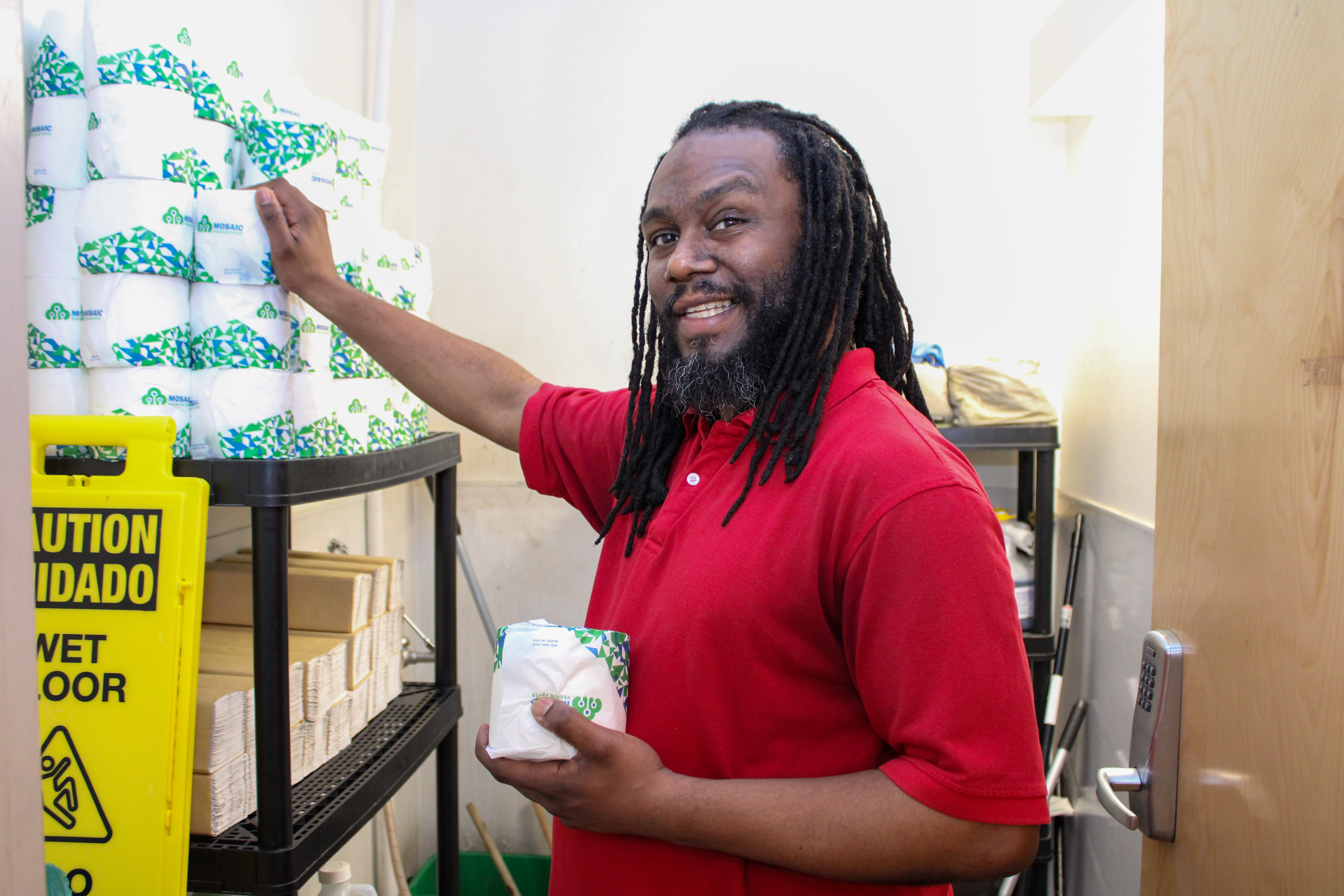October 30, 2025
Honoring National Disability Employment Awareness Month: Harold’s Story of Perseverance and Purpose


Each October we recognize and celebrate the many ways people with disabilities—including those with nonobvious disabilities and mental health conditions—make a positive impact on the workforce. National Disability Employment Awareness Month (NDEAM) is our annual opportunity to highlight the skills, talents, and achievements of employees with disabilities, while shinning a light on the importance of creating inclusive, accessible workplaces for all.
Whether working full-time or part-time, with supports or independently—over 7.36 million people with disabilities across the United States actively contribute the workforce and the greater economy. According to the U.S. Bureau of Labor Statistics roughly 622,000 disabled adults between the ages of 16 and 64 are still actively seeking employment. Programs like Inglis Employment Services helping to bridge the gap to job opportunities for people with disabilities living throughout the Greater Philadelphia area.
Inglis Employment Services (IES) provides job skills training, on-site job coaching, career exploration, resume writing, interview preparation, and other supports to help people with disabilities obtain their next career opportunity. For many disabled adults— the opportunity to work and earn an income—is a key step not only towards gaining more independence but also improving confidence in professional settings and believing in their own abilities. This was especially true for Harold M. a former client of the IES program.
When Harold talks about his job, his voice carries quiet pride. For nearly a year, he’s worked at the Southwest Philadelphia DMV, keeping the building spotless and welcoming for the people who pass through each day. “I feel good,” he says with a smile. “If your boss sees you working, they won’t be on your back. You just do what you’re supposed to do.”
Harold’s journey to this point wasn’t an easy one. After working for six years at Simpson House, he suddenly found himself unemployed. “They let me go,” he recalls. “That’s when we started looking for help to get me a job.” His sister was the one who discovered Inglis Employment Services program.
Through Inglis, Harold connected with job coaches like Johnny and Merv, who helped him regain his footing. They worked together on his résumé, practiced interviews, and prepared him for job opportunities that matched his strengths. “They helped me get good job sites,” Harold says. “They helped me with stability — and they helped me keep going.”
Harold lives with a disability called ataxia, which affects his coordination and sometimes worsens when he’s nervous or when the weather turns rainy or cold. During job interviews, he often struggled with anxiety. But with support from Inglis — and encouragement from his mother and sister — he learned techniques to calm himself and push through. “They told me everything was going to be okay,” he says. “And it was.”
Over the past several years, Harold has worked in a range of roles, from dietary work at Simpson House to cleaning and maintenance at Inglis Methodist Gardens and the Granite Run DMV. No matter the setting, he’s taken pride in doing his job thoroughly — cleaning mirrors and floors, restocking supplies, and making sure every area looks its best. Organization matters to him: “I make sure I keep my supply room neat,” he adds.
What Harold values most about his current job is independence. “If you’re working hard, your boss sees that,” he says. “They don’t have to watch over you.” That sense of trust and autonomy keeps him motivated every day.
He also hasn’t forgotten the lessons from Inglis — about staying positive, staying persistent, and applying for every opportunity. “They always told me, keep going,” he says. “Fill out that application. You’ll get calls.”
Harold’s story is one of resilience — and a reminder that with the right support and determination, meaningful work is always within reach.
For more information on Inglis’ Employment Services program or how your organization can become a more inclusive, accessible employment partner, visit www.inglis.org/ies.
